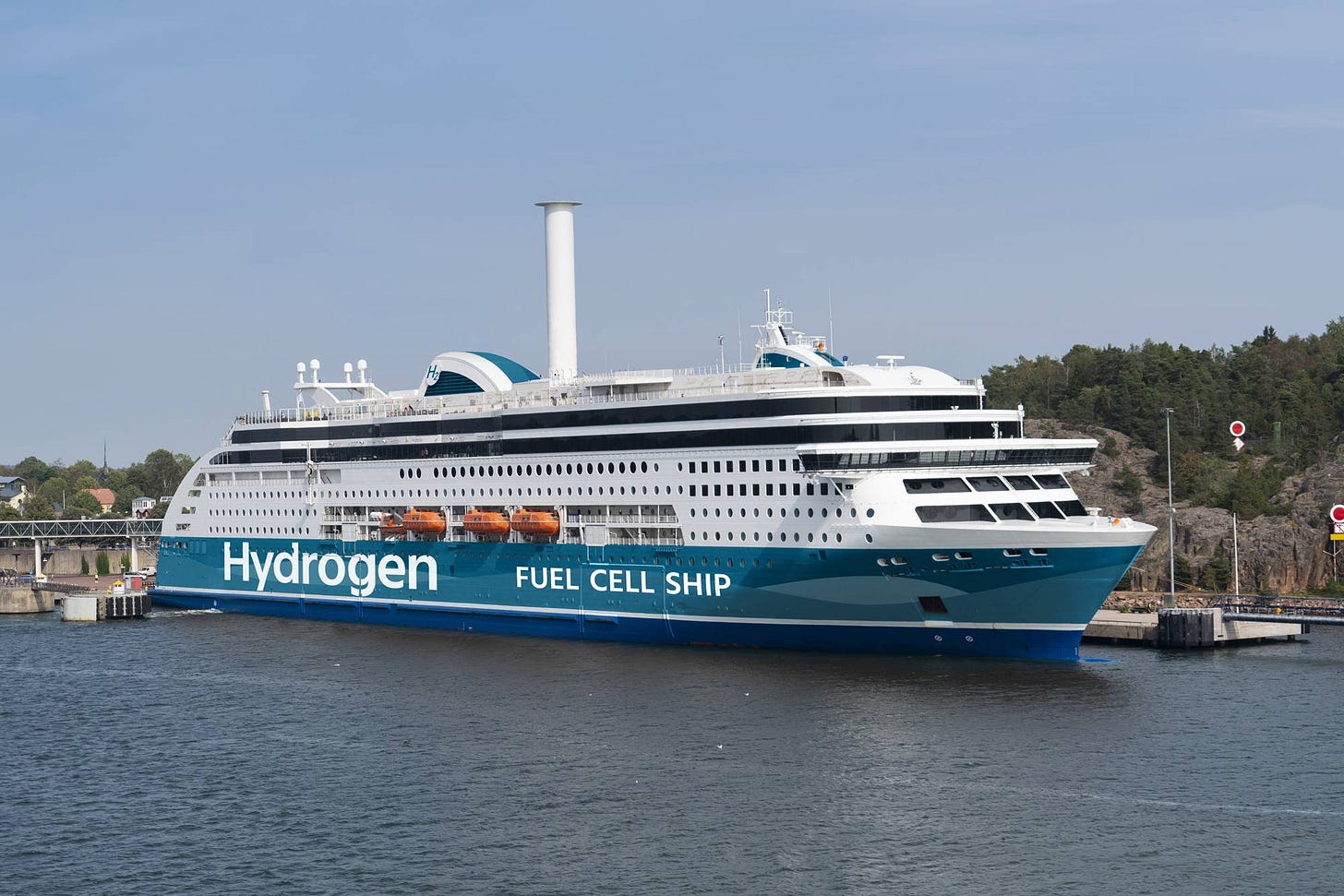Hydrogen Shipping
https://www.rechargenews.com/energy-transition/not-going-to-be-a-thing-it-will-be-too-expensive-to-ship-hydrogen-around-the-world-says-liebreich/2-1-1293562
Some people are bent out of shape because I've said shipping liquid hydrogen is not going to be a thing:
https://lnkd.in/eGgVMmiJ
Ah, they say, we're going to ship it as ammonia. I'll set aside the fact that ammonia is not hydrogen any more than water is hydrogen. Yes, ammonia is easier to ship and to store than hydrogen. And it is a potential pathway to decarbonize shipping (though toxicity is a real problem) and, maybe, long-duration storage.
As a way of powering a modern economy, however, forget it. The Haber-Bosch process is only 50% efficient. By the time you account for the losses from electrolysis (20%), Haber-Bosch (50%), shipping (10%) and generating power (50%) you have lost 82% of your input energy.
[Update: current average efficiency of Haber-Bosch is indeed 50%, but Best Available Technology for new plants is 70%. So you "only" lose 75%, not 82%]
A 4000km HVDC cable, by comparison, loses only 15%.
Can these efficiencies be improved? No doubt - but don't expect miracles any time soon. And there will still be losses at every stage of the process, simply because of thermodynamics, and they will stack up and kill your economics.
https://lnkd.in/eWedmTTX
Methanol is even easier to ship than ammonia. But the energy cost of making it is even more ferocious. Not only do you have to produce hydrogen, but you need a source of carbon - which means collecting and processing biomass or capturing carbon - and then you have to combine them. Feasible where you really need a liquid fuel, but too expensive to drive economy-scale energy imports.
Ah, say others, we have a magic solid/liquid that absorbs hydrogen and makes it easy to ship! Sure you do.
Sodium borohydride can carry 5.3% hydrogen by weight. Its density is 2.5x that of LNG, and hydrogen's energy density is 2.2x that of LNG. That means any given size of ship can carry 0.053 x 2.5 x 2.2 = 29% of the energy of the equivalent LNG carrier.
So you start by needing 3x as many ships as you would to import the same energy via LNG. Then each ship weighs 2.5 times as much, with all sorts of implications for fuel cost, draft, even ship feasibility. And that's BEFORE you start on the capex requirement and parasitic processing losses (50%?) at both ends.
In short, shipping hydrogen via sodium borohydride would be approximately 6x the cost of shipping via LNG per unit energy and have 60% cycle losses. This doen't mean the solution is LNG, but it sure as hell means the solution is not sodium borohydride.
The same sort of calculations can be done for hydrogen transport via metal hydride, metal organic frameworks, liquid organic solvents and all of the other exotic carriers being proposed. None of them will ever enable more than homeopathic volumes of hydrogen to be shipped.
The interesting question is whether the people promoting them know all this. If they do, why are they wasting our time? And if they don't, why are they wasting their own time?



